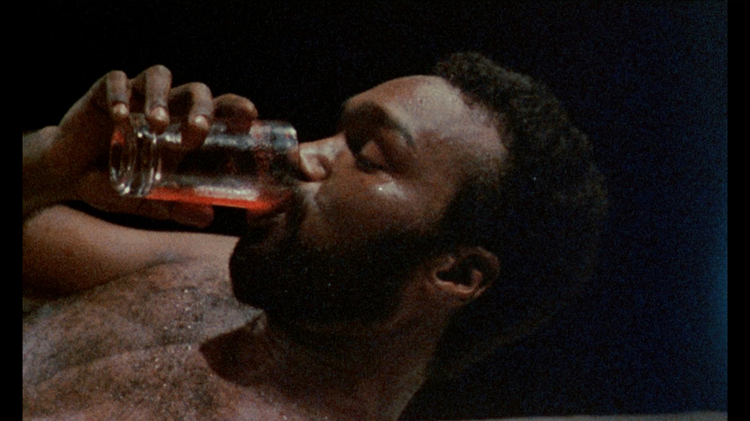
Black Atlantic Cinema Club: Ganja & Hess
classifiedSuitable only for adults
part of Cinema Rediscovered 2016
Please note: This exhibition took place in July 2016
Ganja & Hess is a genuine one-off. Made in 1973, at a time when Blaxploitation was in vogue, the writer, novelist, actor and director Bill Gunn produced a Trojan horse of a movie to get into Cannes. Using the codes of the vampire genre, Gunn’s highly stylised film smuggles in politically charged cultural themes of black identity, sexuality, religion and addiction under the guise of a horror movie.
Hess, played by Duane Jones (following his role in indie horror Night of the Living Dead), plays an anthropologist who contracts a mysterious disease after being stabbed with an ancient object, and subsequently becomes a vampire. He is joined by beautiful Ganja (Marlene Clarke) who soon adopts his lust for human blood. Much more than ‘a sex movie with blood’ as described by Variety at the time, Ganja & Hess is a landmark feature of African-American cinema.
The action is set against a multi-layered exploration of African-American culture and the transformational power of the black church. Gunn pushes against the prevailing black representation of the time - his seductive leads live in a mansion, are looked after by servants, wear sophisticated clothes and occasionally speak French – images that balance the liberal sprinkling of nudity.
Critic James Monaco described it as the 'great underground classic of Black film - the most complicated, intriguing, subtle, sophisticated, and passionate Black film of the 70s.' Spike Lee's 2014 film Da Sweet Blood of Jesus is a contemporary remake of Ganja & Hess for which Gunn is given a posthumous co-writing credit.
- With an introduction from writer/curator Karen Alexander
- Join us in the Café/Bar before the screening for a specially curated vinyl set by Bristol’s HellFire Video Club DJs.
Presented on a 35mm Print preserved by the Museum of Modern Art with support from the Film Foundation. This event is presented by Autograph ABP as part of the Black Atlantic Cinema Club, a season of rarely seen contemporary films and archive classics inviting you to explore rich and different possibilities through which to view the African Diaspora experience of transatlantic culture.
Supported by the BFI's Programme Development Funds from the National Lottery. With thanks to writer/curator Karen Alexander.
